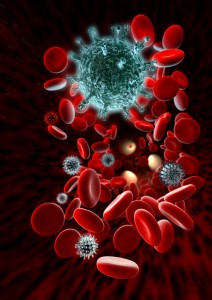 You can catch flu at any time but it tends to be most prevalent at this time of year. Here’s what you need to know.
You can catch flu at any time but it tends to be most prevalent at this time of year. Here’s what you need to know.
From Able Magazine #109 (January/February 2014), by Tom Jamison
In the UK about 600 people die each year from complications of seasonal flu. This figure can rise to around 13,000 in years when there’s an epidemic, so it’s essential that it’s taken seriously.
CAUSES/PREVENTION
The seasonal flu jab is available on the NHS for anyone at risk: over 65, pregnant or with a long-term health condition.
The flu vaccine takes around 10 days to work and will protect you for an entire year.
Children (aged 2 – 18) with long-term health issues are eligible for a nasal spray vaccine unless they are at ‘extra’ risk in which case your doctor may advise that they take the flu jab (proper) even if they are younger.
Sadly, the notion that taking daily vitamin supplements such as Vitamin C can prevent flu is false. There is no evidence to support this. However, introducing more Vitamin C into your diet is no bad thing since it will strengthen your immune system – certainly a factor in helping you to fight infection.
Exercise will also boost your immune system. Your muscle mass will improve as will your circulation.
Supplements, such as zinc and echinacea, work by increasing the number of white blood cells. These fight germs and prevent infections from spreading.
Flu is spread by coughs, sneezes and surface transfer, so to prevent others catching it use disposable tissues and keep your hands clean. It’s also worth explaining to your employer that it makes sense for you to stay home rather than spreading the virus to everyone else.
SYMPTOMS
Flu is different to a heavy cold and is much more severe. Flu symptoms can attack suddenly and can include fever, chills, headaches and aching muscles as well as a cough and a sore throat.
TREATMENTS/VACCINE
Having the flu vaccine cannot give you the flu but it can give you side effects – a sore arm, temperature and aching muscles.
Usual treatment is likely to be rest – two to three days in bed (to sweat it out). Some complications or exacerbations might lead to hospital admission.
Flu cannot be treated with antibiotics because it is a virus and not bacteria. You are likely to be prescribed antivirals. These will not cure flu but they will shorten the illness and make you less infectious. (They have to be taken in the very early days of symptoms.)
A bacterial infection might occur as a result of flu – in which case you may be given antibiotics.
The flu vaccine protects against several different strains of flu. This is why even if you’ve had the flu already this season you can still get it again, by a different strain.
Even if you’ve missed the traditional vaccination dates in early October it isn’t too late to request it.
Gargling with anti-bacterial mouthwash and keeping your teeth clean will mean that there’s one less place for germs to reside.
Gargle with a saltwater solution. This can help clear ‘stuffy’ ears and ease inflammation.
Similarly, nasal passages can be cleared with a saline rinse clearing mucus build up and flushing germs away. Saline solutions can be bought at the chemist or made up at home.
Although exercise is usually a good thing, you need a rest. Save your energy for getting better.
Vitamin C can help boost your immune system and will help to speed up your recovery. Fruits and nuts are an excellent source so be sure to consume several portions a day.
Paracetamol can be used to alleviate aches and pains and a steamy bath will also help your body to relax – particularly as you approach bedtime.
One of the more annoying symptoms that often accompany flu is a dry cough. This can be soothed with honey or lozenges.
Blow your nose regularly and properly. Cover one nostril before evacuating the other and then swap around. Don’t be tempted to ‘sniff’ it back because you won’t be getting rid of the infection and you’ll probably become congested.
Drinking hot liquids relieves nasal congestion and helps to prevent dehydration. It can also soothe inflamed membranes. It will also make mucus runny, so that you can evacuate it more easily. (Tea and coffee are not ideal for this purpose – think hot diluting blackcurrant juice etc.)
Have a curry. This will also promote mucus release and some of the herbs used, including ginger and garlic have anti-viral and anti-bacterial properties.
Congested sinuses can be partially relieved by (either) hot or cold ‘packs’ (or damp cloths) depending on your preference.
Propping your head up with an extra pillow can help with the drainage of nasal passages.
ALLERGIC TO THE FLU VACCINE?
People with an egg allergy may be at increased risk of reaction to the flu jab. There are alternatives available made with less or no egg at all. If your doctor can’t find anything suitable, they may refer you to a hospital where a wider selection is available.
If you are ill with a fever it’s a good idea to delay having the vaccination until you are better. There is no need to postpone for an ordinary mild illness with no feverish symptoms.



